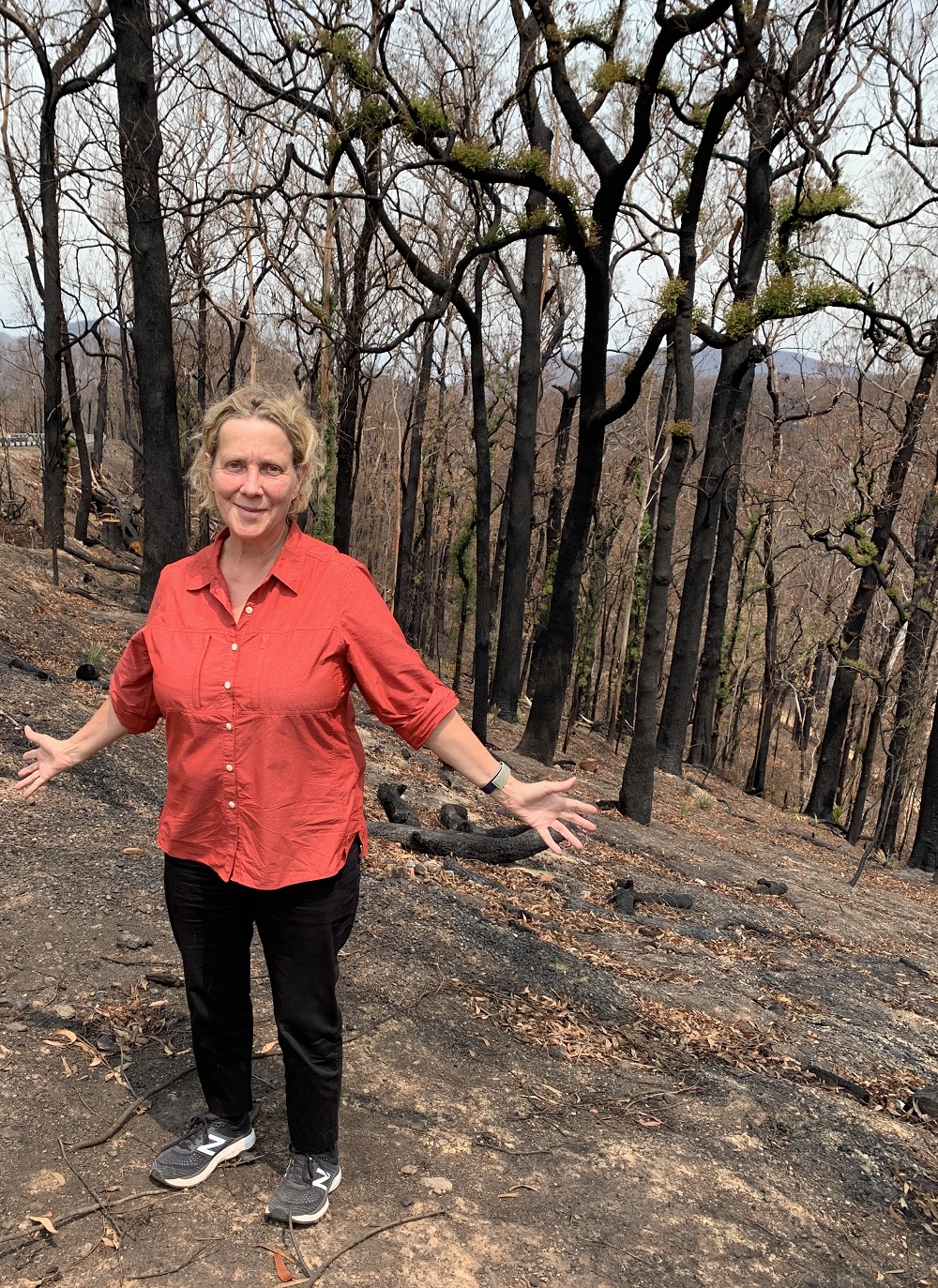Katarina Slavich
25 February 2021: After devastating bushfires tore through Australia just over a year ago, a University of Canberra researcher is looking to the future and pushing for a rethink of how and where we live.
Professor Barbara Norman, Director of Canberra Urban and Regional Futures (CURF) and lead author says the Australian bushfires last year have challenged the way we plan settlements, and is arguing her case in a paper recently published in Nature Urban Sustainability in conjunction with Professor Will Steffen from the Australian National University and Professor Peter Newman from Curtin University.
Professor Norman has questioned the future for small urban settlements within fire-vulnerable forests and bushland, and has put forward a scenario that suggests last year’s bushfire experience can lead to a new model for climate resilient development that can flow into larger centres, with multiple benefits.
“The dramatic impacts of the bushfires in 2019/2020 across the Australian landscape are driving a deeper consideration of their implications for the future pattern of urban development,” Professor Norman said.
Australia is predominantly a coastal urban nation, with 85 per cent of the population living in the coastal zone, mostly in urban centres, where there are significant areas of native forested bushland.
There has always been some awareness of the need for protection, with a long history of volunteer fire brigades being part of Australian settlements in such forested areas.
“However, the unprecedented ferocity of this fire season has traumatised us, and exposes Australians to reconsider how we live,” Professor Norman said.
“Climate change-related bushfires now challenge the growth patterns of smaller regional centres across Australia, especially non-metropolitan urban communities and the scattering of rural development into forest along coastlines.
“Such development has much greater exposure to fire, as well as often being heavily resource consumptive, so we need to urgently rethink how urban growth in these regional areas can be planned more sustainably in the future, perhaps setting a model for how larger cities can change.”

Professor Norman says bushfire recovery, coupled with migration to regional areas during the COVID-19 pandemic, means there is now an opportunity to put in place design principles to future-proof our communities.
“Business as usual will not work, and ignoring the issue is not helping anyone,” she said.
“Allowing housing to spread into areas at risk of extreme weather events will do people more harm than good in the long run.
“Building houses in risky areas not only exposes people to danger, but insurance companies will continue to either increase premiums or refuse to insure properties at all.”
The scenario put forward by Professor Norman is one in which Australia decides to not just bounce back from the fires, but to bounce forward.
“We now have the opportunity to build world-class, environmentally sensitive developments,” said Professor Norman.
She has identified five key steps to help build more resilient and adaptable futures with local communities:
- The transition to renewable energy in regional urban centres
- Climate responsive urban design, through retrofitting programs and consolidation of settlements
- Retreating from high climate risk areas, working with affected communities to identify real options
- Funding support for community climate action plans – climate change adaption, climate sensitive urban design and heat reduction through green urban spaces
- A national investment program in partnership with the states to review urban planning processes to embed action on climate change (mitigation and adaptation)
“The tough question of resettlement will be the next big issue, both globally and locally,” Professor Norman said.
“Ignoring it and not having a discussion about this tough question will not be helping these communities.”


